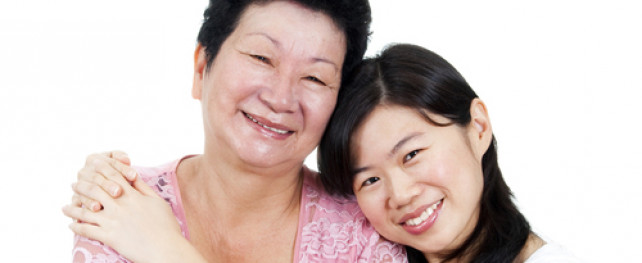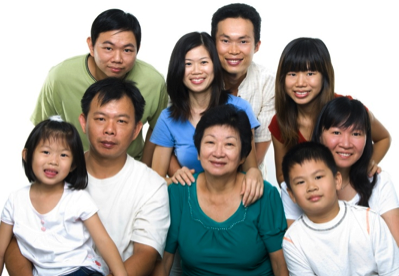Family Customs In Thailand – Very Important to Learn These If You’re Dating a Thai!
Thailand is a tiered society that believes in karma and social status. If you hold a high position in life, this means it was earned from behavior in past lives. The one who holds a high position has to look after his employees and those otherwise beneath his status, including family members with less of an income than him.
In return for his care he receives loyalty, respect, obedience and gratitude. The behavior of Thais towards each other is dependent mostly on social status and age.
Thais therefore also believe in authority, favoritism and other sorts of ‘undemocratic’ structures in government, such as the monarchy. Every Thai actively makes an effort to harmonize the big web of relationships in Thailand.
In Thai culture, several generations of one family often live under the same roof. While in the West it’s usual for only parents and children live together, in Thailand it’s common to have parents, children and grandparents in the same residence. It’s only when the children are much older that they seek homes of their own.
The parent’s home tends to go to the youngest daughter of the family, and it’s also the youngest daughter who is in charge of taking care of her parents when they are old. The oldest male in the family is the one who is usually held accountable for the most important decisions.
A man usually needs to meet the entire family of his bride before he can obtain permission to marry him. He ought to ask her parents first for their consent before he asks her engagement. Both families then get together to set up a wedding date suitable for everyone.
Usually a groom won’t seek a Thai girl’s hand in marriage until he has completed his professional degree – but if he is older, this isn’t so much of an issue. The bride’s parents receive a significant dowry from the groom. Depending on financial circumstances of the couple and their families, this amount is usually symbolic and returned after the wedding.
Sometimes a new couple will live with their parents until they have their first child, but again, for an older gentleman marrying into a family this custom may not be appropriate.
In Thai business circles and other introductions, the Western handshake has become a standardized way of greeting. But Thais usually use a greeting called the “Wai.” The Wai is a symbol of reciprocal respect between two people.
The palms are held together at the heart with a small bow. The person of lower social status is the one who greets first, and the person with the higher social status holds his hands a little below his heart to show symbolically he is meeting the lower at the same point.
The higher the palms are held by the person holding lesser status, the more reverence they are giving to the person they are greeting. It isn’t common to use the Wai for young children, a servant or a beggar. For a member of royalty, a monk or in a religious context the prayer sign may be held at the eyebrows for a greeting, with the thumbs touching the tip of the nose.
The most popular sports in Thailand are soccer, basketball, table tennis and volleyball. Another popular game unique to Asia is called Takro, where two teams of three try to pass a ball over a net without hands.
There are also popular fighting sports, such as Muay Thai Boxing. Movies, kite-flying and Thai chess (which is like regular chess only without a queen) are popular, also. Keep a sound knowledge up about these in order to be in the know!
Thai cuisine also represents one of the richest cuisines in the world, but there is no difference between breakfast, lunch and dinner in regards to what people will eat and when.
Mostly all dishes are served with rice, seafood and some sort of meat. In hotels Western breakfast is available, but most Thais don’t eat those sorts of food for their own breakfast.
Don’t forget that a Thai never puts his fork in his mouth. The fork is used to put food onto the spoon, and only the spoon gets placed in the mouth. This is because the fork is used to take food from common plates and is considered unclean should you place it in the mouth.
These customs may seem quite simplistic, but to a Thai person they’re very important. Following them as closely as you can when meeting your lady’s family will show you’re making a real effort to embrace the Thai way of life, and will show you in a very positive light. Ideal, if you’re about to ask her parent’s permission to marry her.

